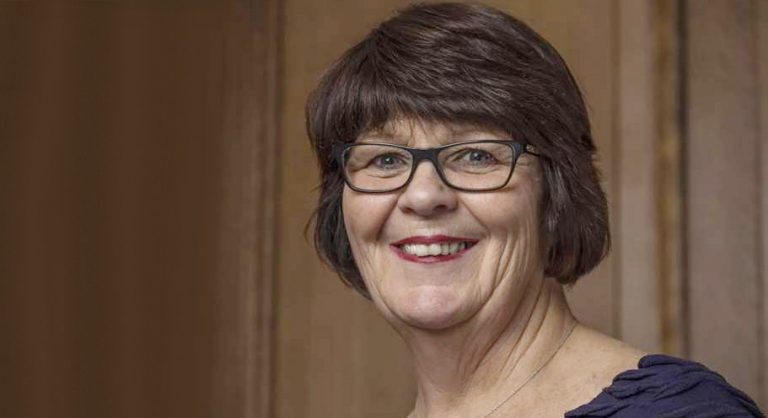Derby-based serviced apartment provider grows its portfolio with new Nottinghamshire site
Derby train-maker opens new training academy
Train-maker Alstom has officially opened a new national training academy at its Derby site, which will help produce future generations of rail engineers.
During a ceremony at its UK train manufacturing site in Litchurch Lane, Derby South MP Dame Margaret Beckett opened the firm’s Apprentice Training Academy, accompanied by Nick Crossfield, Alstom’s Managing Director for the UK and Ireland. The academy, which will welcome 120 new apprentices and graduates this year, has been created following an investment of £250,000 over the last two years. The opening coincided with National Apprenticeship Week, which took place last week. Mr Crossfield said: “National Apprenticeship Week was the perfect time for us to open our academy as we wanted to express our confidence in the future of the UK apprenticeships and the UK rail industry.” Dame Margaret said: “I’m delighted to see Alstom continuing to invest in Derby’s young people, and in the Litchurch Lane facility, the only factory in Britain with the capability to design, build and test new trains for the UK and for export.” Alstom’s Derby site has been at the heart of UK railway manufacturing for 175 years since it was originally established, with generations of train-makers trained on site to manufacture the most technological advanced trains for Britain’s rail passengers. The new Training Academy, featuring 17 permanent teaching staff, offers 1,600 sq m of learning space, comprising four classrooms, a canteen, coffee area, and break out study areas where new trainees are inducted. It also features a training hall, containing a carriage and cab from the AVENTRA programme – the UK’s largest train manufacturing programme in a generation currently on the lines at Derby – where apprentices can gain practical experience working on carriages before joining a live manufacturing team. All levels of apprentices and graduates will now enter their new traineeship with Alstom through the Training Academy, no matter which of the 30 Alstom locations around the UK they will eventually work at. This year’s intake of 120 apprentices and graduates will be the first to formally benefit from the academy scheme. All courses are structured to complement each apprentice’s college or university course, which they will also attend throughout their apprenticeship. Alstom has said it will be working closely with local universities and colleges, including Derby College Group and the University of Derby. Mr Crossfield said: “Alstom has always believed in developing talent through formalised training, as we see apprentices are the future of our industry both here in Britain and around the world.”Staff made redundant at gin business as administrators continue to liaise with potential purchaser
Microsoft goes under the microscope as free resources are offered to SMEs
Proposals revealed to re-purpose historic Derby building
How will you match up when it comes to getting a media date this Valentine’s Day? By Greg Simpson, founder of Press for Attention PR
Roses are red
Violets are green
Trust me on this
If you haven’t seen
The effect of ammonia
On this lovely flower
But note how my plot twist
Delivers the power
To grab your attention
And read more not less
Now apply that same rule
When you’re pitching the press
You’ve got to remember
They get hundreds a week
So do make the effort
Or hire a word geek.
GS.
Greg Simpson, founder of Press for Attention PR, helps you find your media match. Isn’t it funny, or perhaps even tragic, that the way we tend to communicate in our marketing is so, deadly dull!? We play very, VERY safe, lest we upset the delicate balance of “will they like me/loathe me.” The problem is we actually end up saying very little at all and doing NOTHING to separate ourselves from the hundreds of other emails and missives flying around. Now, you don’t have to be HILARIOUS and off-the-wall, indeed for many businesses, it would be in pretty poor taste to suddenly lift out the dusty old ‘Bantersaurus’ from the library shelves or to attempt to resurrect the ghost of Spike Milligan in your next tender submission. However, there is always room for improvement and for differentiation. Especially when it comes to pitching the media. As you probably know by now, I used to be a business journalist so you’d expect I have the inside track and I can speak ‘journalese’. Well, yes but the main thing is, I know how NOT to sound like I’m making a pitch when I’m BLATANTLY making a pitch. You need to remember, PR is public RELATIONS and the bit when you have to communicate with a dreaded journo is Media RELATIONS. So, what you need to start to build (and then maintain) is a RELATIONSHIP. That means give and take. It means being helpful, being useful, being thoughtful. It also involves being attractive BUT that doesn’t mean we need to be sending carefully airbrushed selfies. It means finding what works for them, what floats their boats. Imagine it like internet dating. You need to start by knowing who you are trying to attract (do they influence your market). What are they interested in (what do they write about)? Does that match with you (honestly! If you’re NOT what you claim to be in real life, don’t fib)? How might a ‘date’ with you (useful content) actually help them? This is the research side of the media dating landscape. I’d highly recommend Twitter for this. Let’s pretend that you’ve found your perfect match or indeed, matches. Hey, nobody said anything about exclusives yet right?! How will you pitch them? You need to stand out and you need to consider what they are looking for. Let’s go old skool here and back to the Lonely Hearts Club ads of yesteryear. We need to be adding VALUE so we need to be responding to their needs, not making our marketing moves on them! Here’s what some might be thinking: Finance reporter with freelance roles across several national titles seeks reliable expert to explain what the rise in house prices means for mortgage holders. Must be prompt, not pitchy and able to respond within 48 hours’ notice to request for a ‘date’, typically after the Halifax pipes up with latest results. Or… Lifestyle reporter on daily tabloid seeks top tips to help you get into shape for summer. Brevity preferred. Gifts and trials of equipment and training programmes most welcome. Or… Interiors feature writer on national broadsheet supplement seeks inspiring case studies and trends tips for 2023. Must have visual appeal, no grainy phone snaps taken years ago that no longer look like you say they do. Do you see how they think? All you have to do now is to perfect your pitch to them based on what THEY want. Imagine having the power that Mel Gibson snaffles in ‘What Women Want’. He is speaking the language that resonates, but most importantly of all he is LISTENING. The good news is you don’t need a bolt of lightning, you just need to do some groundwork. I suggest your dating site of choice to start attracting your dream journo is Twitter. A former business journalist, Greg Simpson is the author of The Small Business Guide to PR and has been recognised as one of the UK’s top 5 PR consultants, having set up Press for Attention PR in 2008. He has worked for FTSE 100 firms, charities and start-ups and conducted press conferences with Sir Richard Branson and James Caan. His background ensures a deep understanding of every facet of a successful PR campaign – from a journalist’s, client’s, and consultant’s perspective. See this column in the February edition of East Midlands Business Link Magazine here.











